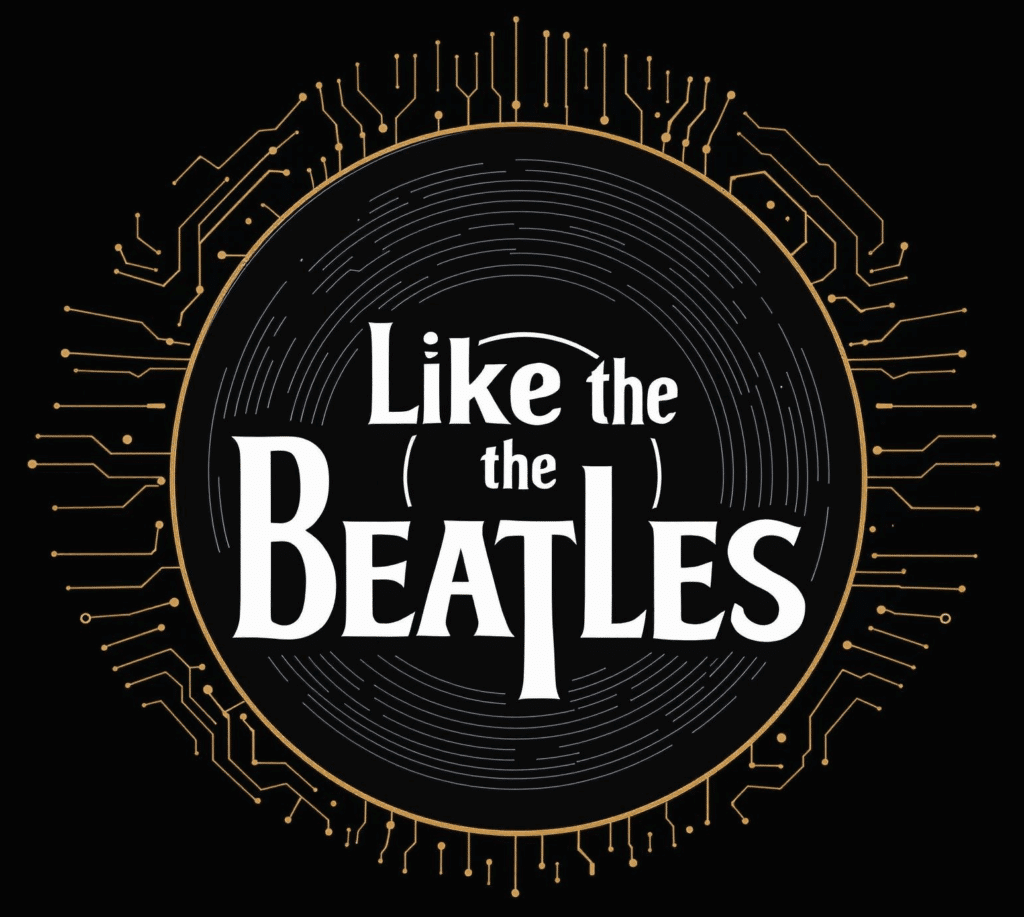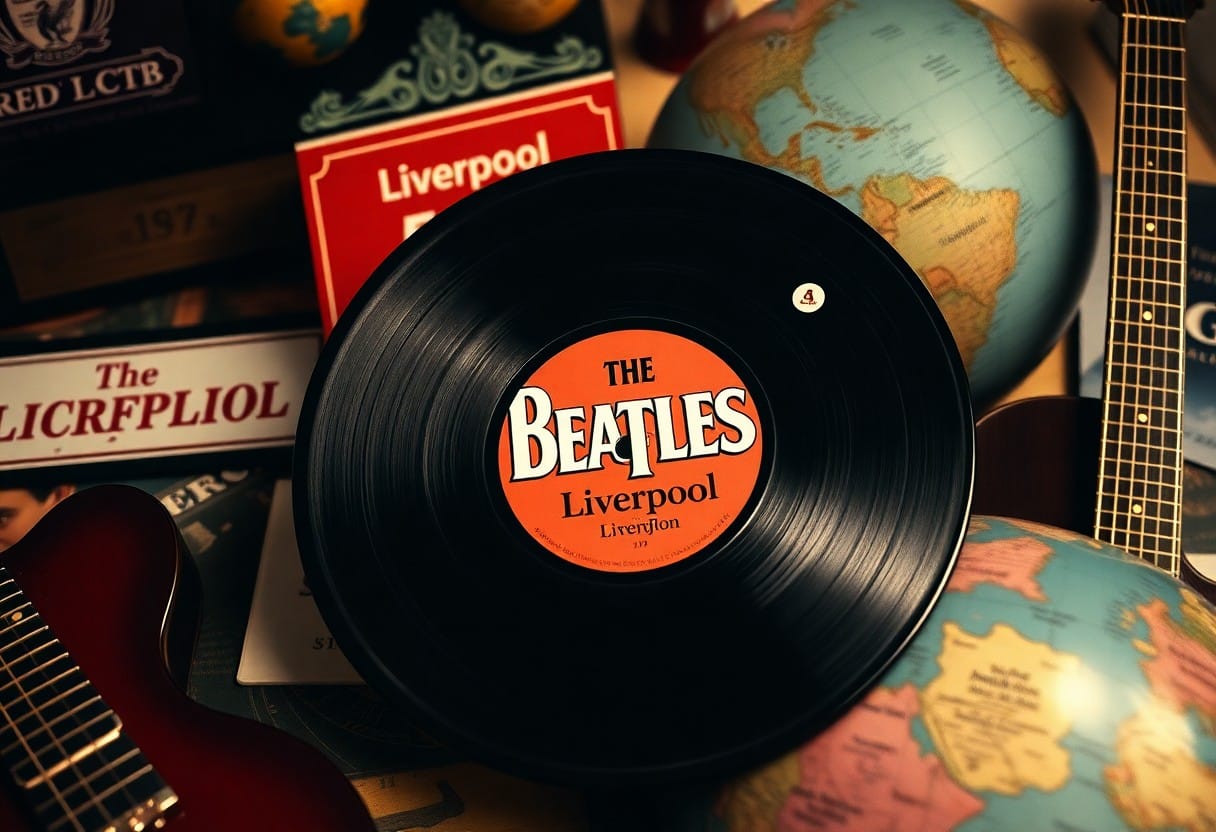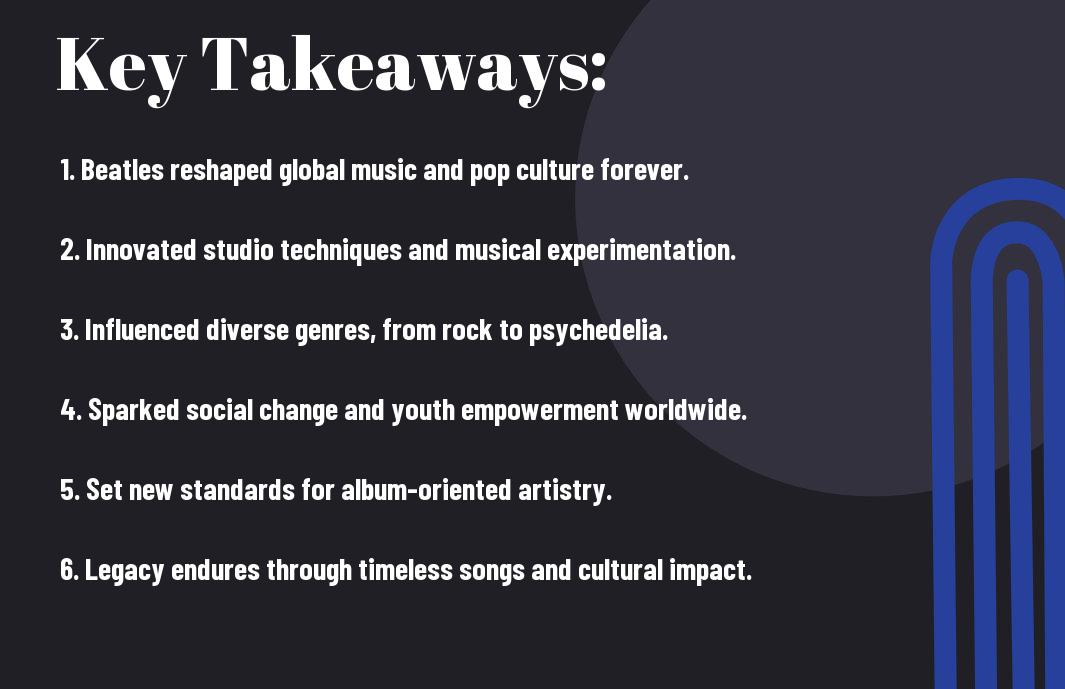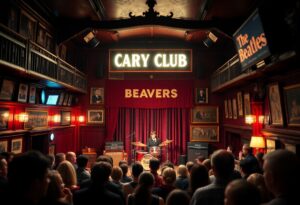Over the decades, I have discovered that The Beatles are not just a band; they are a cultural phenomenon that reshaped music and society. In this blog post, I will guide you through 8 key steps to truly grasp the full extent of their impact from the streets of Liverpool to global stardom. You’ll find that understanding their music, philosophy, and influence enhances your appreciation of their artistry and highlights the lasting legacy they have carved in our world today.
Early Days in Liverpool
Your journey into the roots of The Beatles begins in Liverpool, a vibrant city that played a vital role in shaping the band’s identity. Born out of post-war circumstances, the rich musical culture of Liverpool set the stage for young talents, like John Lennon and Paul McCartney, to explore their creativity and develop the sounds that would soon captivate the world. The city’s tight-knit communities and its thriving music scene offered the perfect environment for these future legends to grow and collaborate.
Formation of the Band
Against all odds, the iconic group that would become The Beatles started as a couple of separate bands in Liverpool during the late 1950s. John Lennon’s Quarrymen, formed in 1956, eventually led to the unification of talented musicians like Paul McCartney and George Harrison. Their shared passion for rock ‘n’ roll and blues became the driving force behind the eventual formation of The Beatles—a band that would defy expectations and change music history forever.
The Cavern Club and Rise to Fame
On a pivotal corner in Liverpool lay the famous Cavern Club, where The Beatles solidified their artistry and began their ascent to fame. Regular performances in this intimate venue allowed them to connect with fans and refine their unique sound, while tough competition and the vibrant energy of the club created an electrifying atmosphere crucial to their early success.
Even as thousands of fans flocked to see their energetic performances at the Cavern Club, The Beatles faced immense challenges, including the pressure to stand out in a crowded music scene. Their persistence led to a series of shows that captivated audiences, propelling them to the forefront of the British Invasion. As each performance sparked growing excitement, they truly became household names, setting the stage for their eventual breakthrough on the international stage.
The Musical Evolution
There’s no denying that The Beatles have left an indelible mark on music history. Their journey from catchy pop tunes to complex soundscapes illustrates a remarkable musical evolution over just a decade. As you explore into their discography, you can witness how each album reflects their growing experimentation and distinct style. This chapter will help you grasp the significant shifts in their artistry and the impact on future generations.
Early Influences
By tapping into a vast array of genres, The Beatles were shaped by their early influences, ranging from rock and roll to skiffle and rhythm and blues. You might find that artists like Elvis Presley, Chuck Berry, and Little Richard played a significant role in structuring their initial sound, which captivated audiences worldwide. This fusion of styles set the groundwork for their future innovations.
Transition to Experimental Sounds
Around mid-1965, The Beatles began to break new ground, venturing into experimental sounds that would redefine popular music. This transformation became particularly evident in albums like “Rubber Soul” and “Revolver.” The incorporation of unconventional instruments and innovative production techniques marked their shift from straightforward melodies to complex arrangements.
It was during this time that The Beatles pushed the boundaries of what music could be. I found their use of studio techniques, such as tape loops and reverse sounds, to be particularly captivating. You might notice how songs like “Tomorrow Never Knows” served as a gateway to psychedelic music, embracing spirituality and experimentalism. This era was not only vital in shaping their identity but also laid the groundwork for artists who dared to take risks in songwriting and production, influencing an entire generation in the process.
Cultural Impact
After their historic arrival in America, The Beatles transformed not just music but global culture, influencing fashion, attitudes, and social movements. This iconic band reshaped the fabric of the 1960s and beyond, signaling a shift in how music was perceived and consumed. Their innovative approach to songwriting and production opened the door for countless artists and genres, establishing a legacy that transcends generations and borders.
The British Invasion
Among the most significant aspects of The Beatles’ cultural impact is their role in the British Invasion. This wave of British rock and pop artists took over the American music scene in the 1960s, bringing with them a fresh sound that captivated millions. The Beatles paved the way for bands like The Rolling Stones and The Who, forever changing the landscape of popular music.
Influence on Global Music
British artists following The Beatles’ lead have continued to innovate, shaping the future of various music genres worldwide.
In addition to their immediate influence, The Beatles’ pioneering techniques and experimentation with recording methods have had a long-lasting impact on the music industry. Their embrace of *psychedelia*, *folk*, and *rock* opened up new avenues for artists across the globe. Today, you can hear echoes of their style in countless genres, from *pop* and *rock* to *hip-hop*. Moreover, they showed future musicians that music could be a powerful medium for *social change*, encouraging artists to use their platforms to address important issues. Their legacy continues to inspire and challenge you to innovate and push the boundaries in your own musical endeavors.
Legacy of Their Lyrics
Once again, The Beatles revolutionized the music scene not only with their melodies but with their profound lyrics. Their songs addressed both personal and societal issues, resonating with audiences across generations. Lyrics such as those in “Imagine” and “A Day in the Life” invite deep reflection, showcasing the band’s ability to weave complex emotions and concepts into compelling stories. As we investigate into their lyrical legacy, it becomes starkly clear why The Beatles remain a vital part of our cultural narrative.
Themes and Messages
Before examining their impact, it’s vital to explore the rich tapestry of themes and messages in The Beatles’ lyrics. They investigate into love, peace, and the human experience, often challenging societal norms and expressing a desire for change. Songs like “All You Need Is Love” champion a universal message of acceptance and unity, while others, like “Eleanor Rigby,” evoke feelings of isolation and the passage of time. The multilayered meanings behind their words continue to inspire listeners and provoke thought.
Literary Significance
To understand The Beatles’ literary significance is to appreciate their place in both music and literature. Their lyrics are often likened to poetry, filled with vivid imagery and clever wordplay that transcends the borders of traditional songwriting. By blending narrative storytelling with a distinct lyrical style, The Beatles have created a lasting cultural impact, influencing countless genres and artists.
Even the most casual listener can see that The Beatles’ lyrics reflect significant literary qualities. Their songs often utilize metaphor, alliteration, and imagery, drawing on literary traditions that have shaped culture for centuries. Works like “Yesterday” or “Lucy in the Sky with Diamonds” demonstrate their ability to craft memorable lines that evoke strong emotions and imagery. This blending of music and literature not only elevates their work but establishes their rightful place as profound cultural icons—a feat that few musical groups have achieved.
The Business of The Beatles
Not only did The Beatles change music, but they also transformed the way artists manage their careers. The band’s rise to fame was a masterclass in branding and commercial success, making them pioneers in the world of music business. To dive deeper into their artistic impact, I recommend Way Beyond Compare: The Beatles’ Recorded Legacy ….
Management and Branding
Beatles management was revolutionary; they effectively crafted their public persona while maintaining control of their art. From Brian Epstein’s vision to their iconic image, each decision was made with intention, setting a template for how artists could approach branding in the industry.
Innovations in Music Distribution
Along with their artistic innovations, The Beatles changed music distribution forever. Their decision to embrace LP albums over singles altered the landscape of how music was consumed.
Innovations in music distribution by The Beatles were groundbreaking and had lasting effects on the industry. The band’s shift toward immersive albums allowed for deeper storytelling and artistic expression. They pioneered the idea of the concept album, which encouraged listeners to engage with the music on a more meaningful level. By embracing new technologies like tape recording and studio effects, they curated a sound that was both revolutionary and beloved. These actions not only established a new standard for artists but also opened doors for future generations to explore creative avenues in music production.
The Solo Endeavors
Despite the incredible synergy they shared as a band, the members of The Beatles commenceed on remarkable solo endeavors that showcased their individuality. Each member explored different genres and themes, enriching their artistic legacies and allowing fans to experience new dimensions of their creativity. From pop to experimental sounds, the essence of their collaborative genius continued to resonate through their solo work.
Post-Beatles Careers
With the breakup of The Beatles in 1970, each member carved out unique careers that were often reflective of their personal styles and interests. John Lennon focused on political activism and personal storytelling, Paul McCartney explored melodic pop with Wings, George Harrison embraced spirituality through music, and Ringo Starr ventured into a mix of rock and playful tunes. These paths allowed them to maintain their relevance in the music industry.
Continuing Influence of Members
Along the way, the solo careers of the Beatles members have consistently influenced generations of artists. They opened new doors for experimentation and self-expression in music, inspiring countless singers, songwriters, and producers to innovate. Their contributions to various genres can be seen today, as elements of their styles and approaches are woven into the fabric of contemporary music.
Careers in the music industry are often built upon the foundations laid by iconic artists like the Beatles. The cultural impact of John, Paul, George, and Ringo still resonates today. Artists such as Neil Young and David Bowie have drawn inspiration from their work, reflecting their legacy in modern sounds. Furthermore, influential groups like Oasis have cited the Beatles as a pivotal influence in shaping their own identities. This ongoing conversation highlights a lasting bond with you, the listener, reminding you that the essence of their music continues to evolve and inspire.
Summing up
Ultimately, understanding The Beatles’ full legacy requires a deep investigate their innovative music, cultural impact, and enduring influence across generations. By exploring their artistic evolution, social contexts, and the roles of each member, you can appreciate how they transformed not just music but also the very fabric of society. I encourage you to reflect on the ways their artistry resonates within your own life and how it continues to inspire new waves of creativity globally. Embrace the journey of discovery as you connect with the timeless essence of The Beatles.












